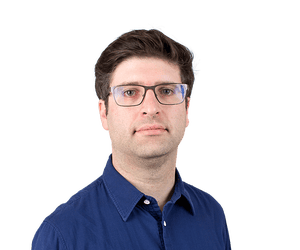Zelenskyy to debrief EU leaders on Trump call before military chiefs head to London – Europe live

Key events
‘That was Macron, I will call him back,’ Zelenskyy briefs journalists on ‘fruitful, perhaps most fruitful we had’ conversation with Trump

Shaun Walker
in Kyiv
In a Zoom call with journalists late on Wednesday, Zelenskyy said he had “felt no pressure” from Trump, adding: “It was a fruitful conversation, perhaps the most fruitful we have had, the mood was positive.
“We have received signals from the United States that we are talking about the ceasefire on energy facilities, so not to attack energy infrastructure, and we are also talking about the civilian infrastructure facilities.”
Zelenskyy said his team would draw up a list of the kind of facilities they felt could be included and would present them to the Americans at upcoming negotiations.
The Ukrainian leader also said that he and Trump had discussed the US proposal to take ownership of the Russian-occupied Zaporizhzhia nuclear power plant in south Ukraine.
“We talked only about one power plant, which is under Russian occupation,” he said.
In a sign that European leaders are closely watching the discussions between Trump, Putin and Zelenskyy, the Ukraine president answered a phone call while speaking with reporters on Wednesday evening and promised to call back.
Returning to the briefing, he said: “That was President Macron, we have a conversation on average once a day, he’s helping a lot. I will call him back.”
Morning opening: Europe rallies to support Ukraine

Jakub Krupa
It’s another busy day in European diplomacy.
European leaders are meeting in Brussels this morning to discuss Ukraine, Middle East, competitiveness, and European defence, building on a recent extraordinary summit.
Dangling the carrot of multibillion investment in European industries, António Costa, European Council president, wrote to leaders:
Our continued support to Ukraine, the need to invest in our defence and our competitiveness are closely interlinked. A more competitive Union will be a stronger Union, better able to protect its citizens, its interests and its values on the global stage.
In the course of the morning, the leaders will here from Ukrainian president Volodymyr Zelenskyy, getting an unfiltered view of his phone call with US president Donald Trump.
In particular, they will be probably keen to hear more about the plans for a limited – but gradually expanding, if possible – ceasefire, and Trump’s unusual promise to “work with him to find what was available, particularly in Europe” to support Ukrainian air defence, which could be seen as an indirect rejection of the Russian demand to stop arming Ukraine.
Over lunch, they will also speak with UN secretary general António Guterres; ECB president Christine Lagarde and Eurogroup president Paschal Donohoe will also join for a bit.
Their talks are likely to go into late evening, but our attention will shift to Britain in late afternoon, as UK prime minister Keir Starmer hosts over 30 army chiefs and planners to discuss his plans for the “coalition of the willing”.
We should hear from him at some point, too, but in a show of just how serious he is about defence, he made a rare visit to a nuclear-armed submarine HMS Vanguard – a first such visit by a serving prime minister in more than a decade.
But his coalition faces a challenge even before it came into existence as Russia’s president, Vladimir Putin, has made clear he wouldn’t accept western military aid flowing to Ukraine and Nato forces on Ukrainian soil under any peace settlement. Despite this, there are no signs that his words in any way affected the continuing planning. Ultimately, that’s what “peace through strength” is meant to be about.
Lots to cover – starting from European leaders’ arrivals in Brussels in the next hour or so. I will bring you all the latest here.
It’s Thursday, 20 March 2025, and this is Europe live. It’s Jakub Krupa here.
Good morning.




